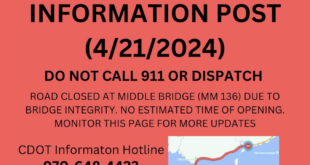Board finalizes plans for energy efficiency, improved operations, customer culture
By Kendra Walker
In five years or so, the Mountain Express hopes to be driving not only colorfully painted buses but also buses that run on bio-fuels or electricity.
The Mountain Express (MX) board of directors has finalized their long-term strategic plan, which focuses on energy use and impact; policy, studies and plans; customer-focused culture; and improved operations. After discussing final changes during their July 18 meeting, the board approved the drafted plan and plans to update it as they meet with the Regional Transportation Authority (RTA).
“It looks great. Thank you everyone for your work on this,” said MX chairman Laura Mitchell.
As part of the strategic plan, MX aims to evolve with today’s environmentally conscious transportation technologies and provide local residents and visitors with a clean and sustainably responsible way to get around. “When we’re looking at how to reduce our emissions in this area … that ties into our town’s goal to reduce emissions in the valley,” said MX board member Will Dujardin.
Goals include implementing a plan by 2022 to purchase the most energy efficient buses possible; by 2029 reduce bus emissions by 50 percent; and help decrease the number of cars on the road between Crested Butte and Mt. Crested Butte, year over year by 2024.
“It’s a goal that we can actually reach, if we’re putting more people on the bus, theoretically that should reduce the numbers of cars,” said Dujardin. “If we have efficient routes and schedules, then people will be getting out of their cars, and then this goal will be measurable.”
“There are a number of factors that are beyond our control,” added MX vice-chair Dwayne Lehnertz. “We might be in over our heads but I totally embrace the challenge of moving forward.”
The board also plans to establish policies for determining expansion and funding of bus services and work with the RTA to create a transportation plan for the north end of the valley, to implement June 2021. Mitchell, a new member of the RTA board, plans to help develop a partnership between the two entities. “I’m just getting my wheels on my bus over there,” she said. “We’re going to work on this relationship in the next year and establish a relationship.”
Additionally, the MX board will conduct market surveys to measure rider demographics and service needs. “The rider is our customer, and we’re trying to learn about our customer and their habits and their wants and needs,” said MX board member Roman Kolodziej. “I think arguably the biggest and most difficult questions that we have to ask are, ‘What is our core service?’ and ‘What goes into expanding that service and what’s the funding mechanism?’” he said.
“If nothing else comes out of this plan, that’s what I want to know,” joked transit manager Chris Larsen.
Under the strategic plan, MX also plans to continue to measure performance and decisions based on the customer experience. This will include advertising and encouraging users to view routes and schedules on the Google Maps app, where MX schedules have been synched for a more user-friendly experience. “If you type in a destination and instead of selecting car or person, you select bus,” explained Kolodziej.
“It’s pretty much on-point,” said Dujardin as he tested out a directions search. “Google Maps is telling me, I can get a reminder on when to leave on time, I can get a reminder of when I need to transfer buses if I need to.”
Finally, the strategic plan outlines MX eventually operating out of a new building in the Whetstone Industrial Park. MX was awarded a $60,000 grant by Colorado Department of Transportation (CDOT) to hire a building consultant to develop a plan for the new building’s features, considering elements such as solar energy, alternative fuel stations and housing.
“We need somebody who knows how to build a commercial facility like this at high altitude and understands what goes into alternative fuel buildings,” said Kolodziej. “They’re going to come up with things we might not have even thought about,” added secretary Gary Keiser.
The approved strategic plan will act as a rolling document, especially as conversations evolve with RTA. The board plans to update the plan each year and revisit goals and ideas around expanded services.
“Our desire is to decrease cars on the road, pollution, all that stuff. Well, the ideal would be that everybody has access to the bus,” said Lehnertz. “Starting from where we’re at that is an ambitious goal. But ambitious or not, or however you perceive the magnitude of the task, I think we should still be aiming for that.”
Let those wheels go round and round.
 The Crested Butte News Serving the Gunnison Valley since 1999
The Crested Butte News Serving the Gunnison Valley since 1999





